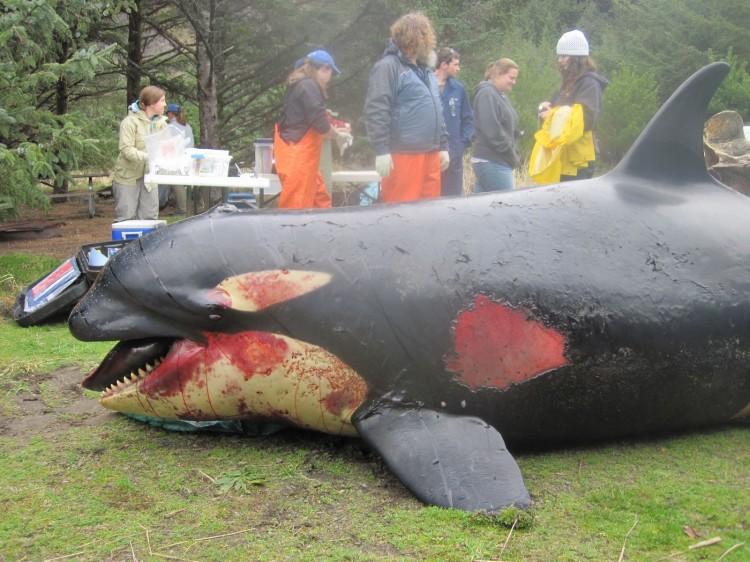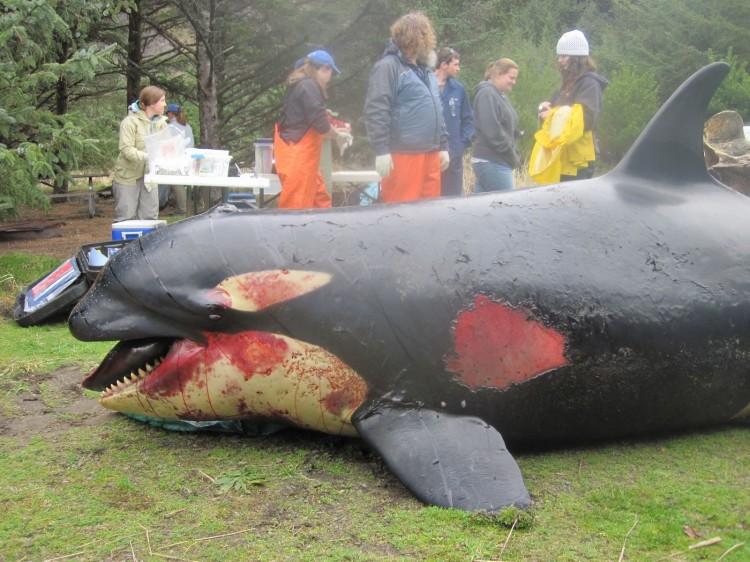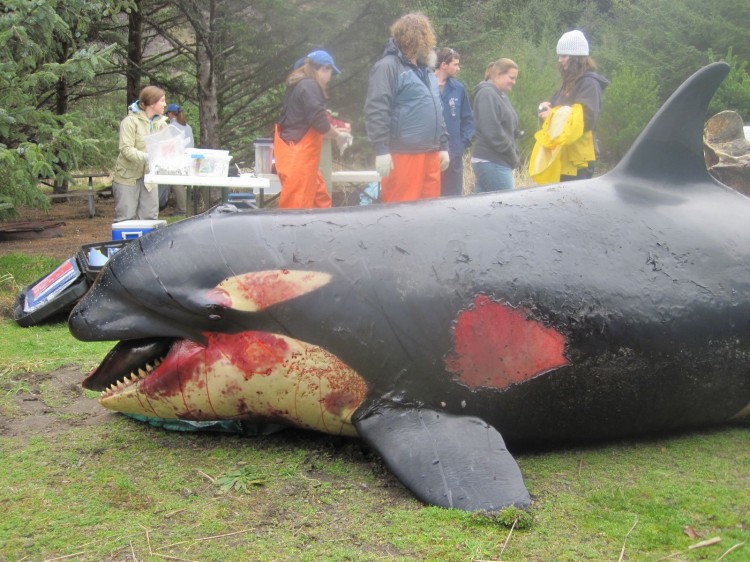VICTORIA, Canada—Eight British Columbia conservation groups are collectively urging the Royal Canadian Navy to stop conducting military training exercises in the critical habitat of the highly endangered southern resident killer whales.
The call comes in relation to the death of a young southern resident known as “L112” whose bloodied body washed ashore near Long Beach, Wash., on Feb. 11, days after the naval frigate HMSC Ottawa had conducted training exercises in waters south of Victoria, British Columbia.
While the cause of death has yet to be determined, an initial necropsy showed that L112, also known both as “Victoria” and “Sooke,” died of “significant trauma.”
However, the biologists involved said the wounds were inconsistent with the 3-year-old whale having been struck by a ship or attacked by a predatory whale.
Ken Balcomb, a senior scientist with the Center for Whale Research in Friday Harbor, Wash., says it is also unlikely that L112 was killed by sonar, which at close range can have much the same effect as a bomb.







